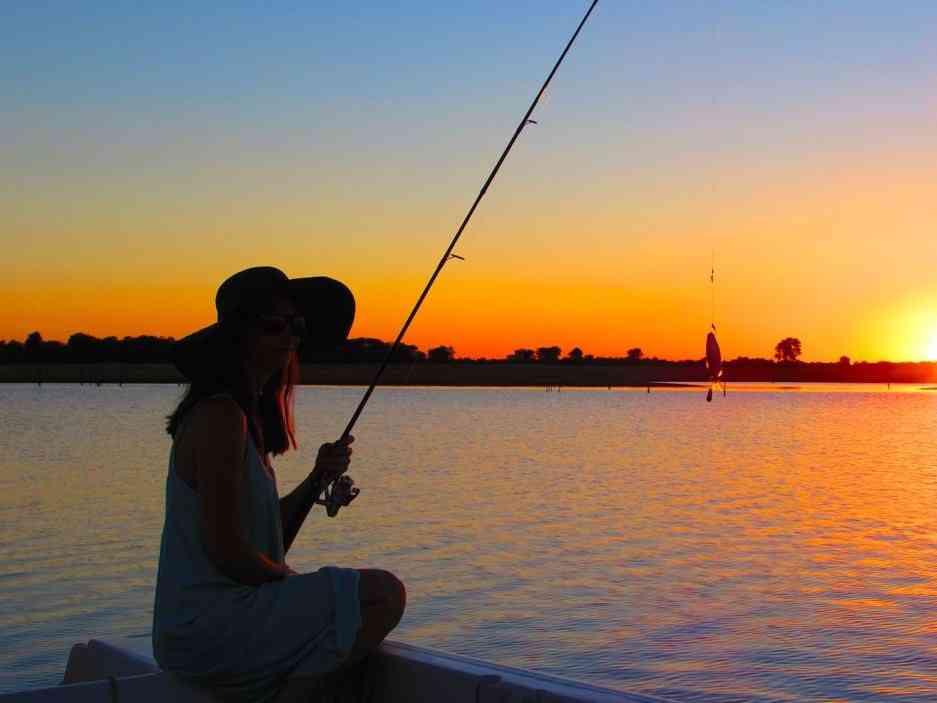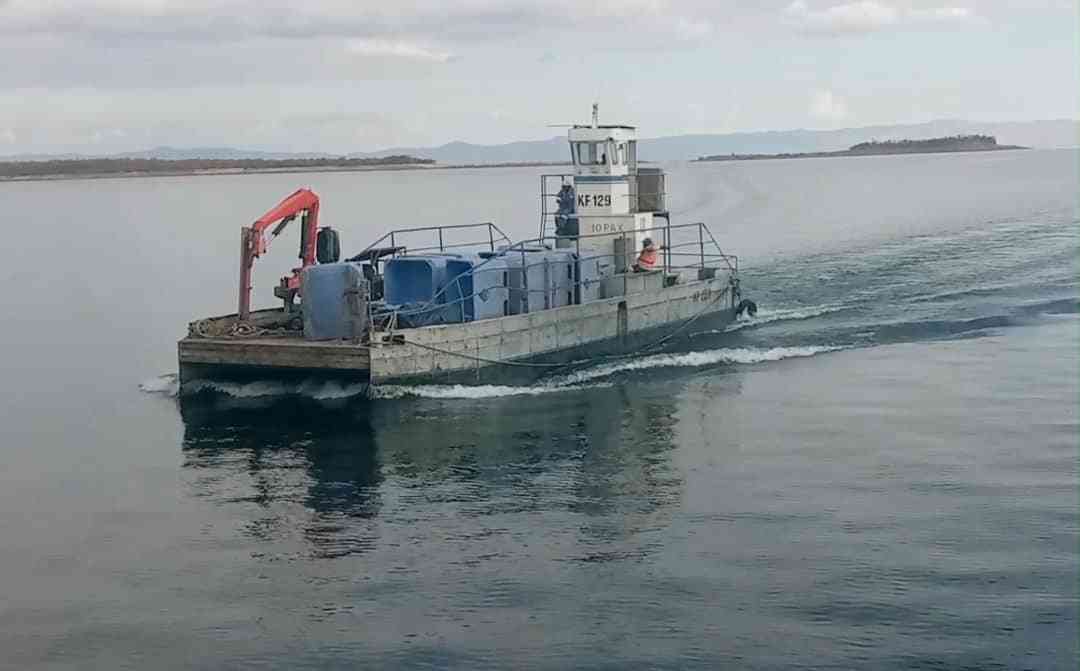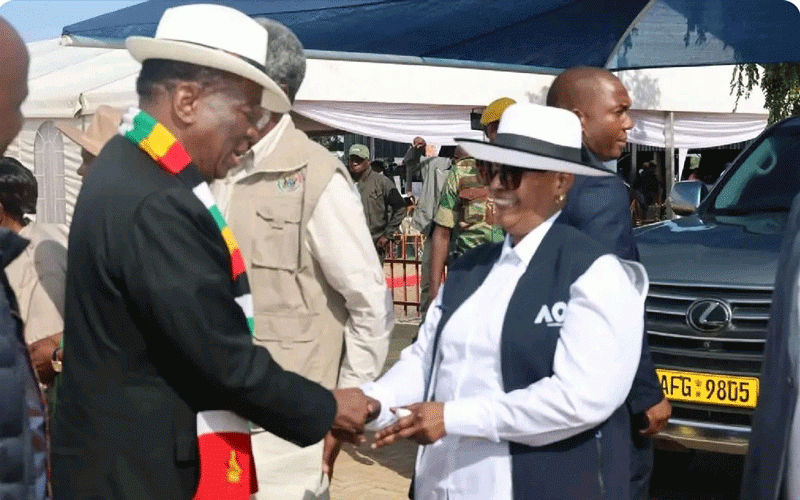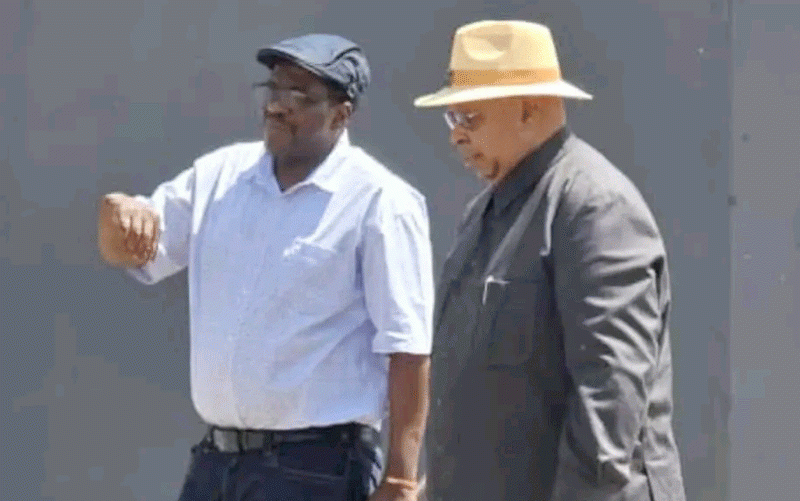
THE Zimbabwe National Parks and Wildlife Management Authority (ZimParks) has reduced the minimum allowable fishing depth in Lake Kariba from 20 to 17 metres to alleviate the plight of fishmongers who were struggling to survive due to decreasing catches as a result of low water levels.
Announcing the new development, Fulton Mangwanya who, until recently, was ZimParks director general, said the government had made the move after consulting with stakeholders in the industry and taking serious consideration of the state of the lake and the fishermen’s plight.
Mangwanya has since been appointed director general of the Central Intelligence Organisation.
“After careful consideration and various meetings with the fishing associations, the authority has reduced the minimum allowable depth for Kapenta fishing from 20 to 17 meters,” he said.
This followed the severe depletion of water in the lake due to unprecedented drought in the region caused by the El Nino phenomenon whose effects include the obtaining below average rainfall and soaring temperatures.
Last month, The Standard, in conjunction with Information for Development Trust (IDT), exposed rampant corruption, robberies, gross violations of lake use regulations and numerous other vices, including prostitution taking place in the settlements around the lake as the fishing businesses teetered on the brink of collapse.
IDT is a non-profit organisation helping journalists produce investigative stories on corruption and bad governance.
The receding water levels on Lake Kariba have affected the fishing industry badly with lawlessness becoming commonplace and impacting negatively on livelihoods on the lake.
- ZimParks should restore Campfire programmes
- Lions, jumbos on the loose
- Drought takes its toll on Hwange elephants
- Trio arrested for poaching
Keep Reading
“The authority will closely monitor the catch quality to ensure the sustainability of the Kapenta fishing industry." Mangwanya said.
Even after the first rains of the season which came late in December 2024, no significant inflows have been recorded in the vastly depleted giant water body.
The low water level has since forced the migration of some of the fishermen from their traditional fishing spaces to other areas where water levels are better.
While this development was widely embraced by fishermen, it has however resulted in a new wave of space disputes erupting among the various fishing cooperatives.
The drop in the water levels on the lake in the past two years is unprecedented, dropping to levels way below average.
Kariba is designed to operate between depth levels of 475.50m and 488.50m for optimum hydropower generation.
The water levels have been steadily decreasing due to low inflows being recorded on major tributaries that discharge direct into the reservoir and the mainstream Zambezi River.
Fluctuations in the levels have been observed as a result of direct rainfall on the reservoir and immediate catchment areas.
The level had gone down to 475.78m by December 30, 2024, compared to 477.21m recorded on the same date last year according to Zambezi River Authority which monitors the dam levels.
Because of the receding shoreline and dam levels, fishermen now have to carry their boats at least 1,5 km into the water from the shoreline as opposed to less than 200 meters that they used to wade in when the level was normal.
In the current settings the fishermen face the danger of being attacked by crocodiles the shallow water, especially in the Nsengwa area in Binga where the dam has literally dried up.
Authorities have also had to act with some of the fishing spaces such as basin 1 being temporarily closed for fishing. Permit holders in these basins have been moved to either basin 2 or 3.
Explaining the implications of the fishing depths adjustments, Mangwanya said: “Fishers from basin 1 which is Mlibizi and basin 2 that is Binga are now allowed to fish in Basin 3 which is in Sengwa although this intervention will not allow basin 3 fishers to fish in basins 1 and 2.
Fishers are expected to adhere to all the other terms and conditions of their permits.”
The temporary variations in minimum fishing depth for Kapenta fishing is an adaptive measure to the reduced fish¬ing grounds due to cli¬mate change, Mangwanya said as he made clear to the fishermen the temporary nature of the new measures.
The variations came as a great relief to fishermen who last year had fishing rigs impounded and they were fined as much as US$2 000 per vessel for fishing in depths less than 20 metres.
Over 50 fishermen were penalised in 2024 for violating this rule as they played hide and seek with authorities on a daily basis according to Bernard Munsaka, vice chairman of Zimbabwe Kapenta Producers Association.
He said there were unscrupulous lake authorities, including Zimparks officials, who capitalised on the fishersmen’s desperation and took bribes to allow fishing rigs to venture into prohibited areas.
Munsaka, however, applauded ZimParks for the new concessions allowing them to fish in depths of 17 metres after initial negotiations had ended at the 18-metre deadlock.
“We applaud ZimParks for prohibiting Basin 2 permit holders from fishing in Basin 2 because of their large numbers. We hope to review the situation after four months to ensure suitability of the Kapenta industry,” he said.
“Due to the problem of shallow water, fishermen were crowding the few deeper areas causing overfishing in such locations.
“Notable areas in this situation were Simmatelele and Kampaka Sijalila in basin 2 as well as Nsengwa/Makuyu, Zinyama and Chibuyu in basin 3.”
Authorities have also since suspended the issuing of new fishing licenses as a way to control congestion in the few fishing spaces, but fishers continue to face other challenges such as pirates who continue to be a major threat. Boats of all sizes cris-cross the lake at night illegally harvesting fish alongside fee-paying commercial operators, Mnsaka said.
ZimParks made it clear in recent interviews that the idea of establishing fishing camps along Lake Kariba had never been to create permanent settlements along the massive water body.
This investigation, however, found that such camps had steadily grown in number although a good number of these camps had nothing to do with fishing.
Several of these camps accommodate sex workers who travel from places far away from the lake to eke out a living among fishers.
Olinda Mutape, a 22-year-old sex worker said: "There is now very little fish coming out of the lake and we know fishermen are no longer making a lot of money.
“So, we have also reduced our business prices so that we can survive. We used to charge between US$5 to US$10 for sex but we now charge as little as a single dollar for a whole night, just so we can get something."
The rising population in the fishing camps has created more challenges for the fishermen as health issues such as the recent cholera outbreak come up.
Cholera claimed one life in November leaving at least five others receiving treatment at the Gache Gache fishing camp.
The Cholera outbreak which authorities managed to contain a month later in December, was confirmed by Kariba district’s Civil Protection Unit and District Development Coordinator, Anele Gumbochuma.
The outbreak affected the sector as fish movement was restricted, a development that affected fish sales, compounding the fishers’ misery.
The poor state of the lake has affected the lives of women and children in communities around the lake and impacted their disposable income a great deal.
"As schools are about to open we are desperately trying to raise money for school fees for my three children. My husband used to bring home at least US$30 every day from fish sales but now it is very difficult to raise the same amount in a week.
Sometimes they come back empty handed because of the stiff competition from the many fishermen that now flood the same fishing spaces," said Esther Gavi a fish trader and mother of four at Gatshe Gatshe Camp.









